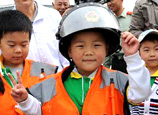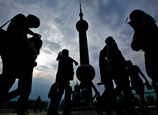
Hopes fading
The 1970s to 1990s were a golden age for college students in China. During that period, all tuition fees were covered by the government and jobs were often guaranteed.
But times have changed.
"Rich families now have the advantage. They can choose the best schools in their cities. Their children have the chance to receive higher education as long as they are willing to pay," Zheng said, pointing out that rural students receive fewer resources as early as kindergarten.
"In that case, the descendents of the rich will remain rich, those of the poor will remain poor," he said. "The channels for young people to move from a lower class to a higher one are becoming rarer."
Kang Liping, now 25, dropped out of a high school in Ronghuashan town, Dalian, Liaoning Province in 2006, when she was a 12th grade student. "I couldn't see any hope of entering college and couldn't imagine loading myself up with huge debt by the time I finished college," Kang told the Global Times, adding that many of her classmates who couldn't enter colleges work low paid jobs.
With decreasing numbers of rural students, their representation in elite universities has also dropped.
In 2010, rural students accounted for 17 percent of the total number of students at Tsinghua University. Rural students attending Peking University dropped from 30 percent to 10 percent over the past 20 years, dahe.cn reported.
To make things more difficult, when rural college students graduate, they face more barriers, including difficulties obtaining urban residence permits, or hukou, high housing costs and a lack of personal social networks that more wealthy urban students often take for granted, Zhang Youming, the founder of guolairen.com, a Beijing-based employment website, told the Global Times.

















 White angels in Chongqing South West Hospital
White angels in Chongqing South West Hospital


![]()
